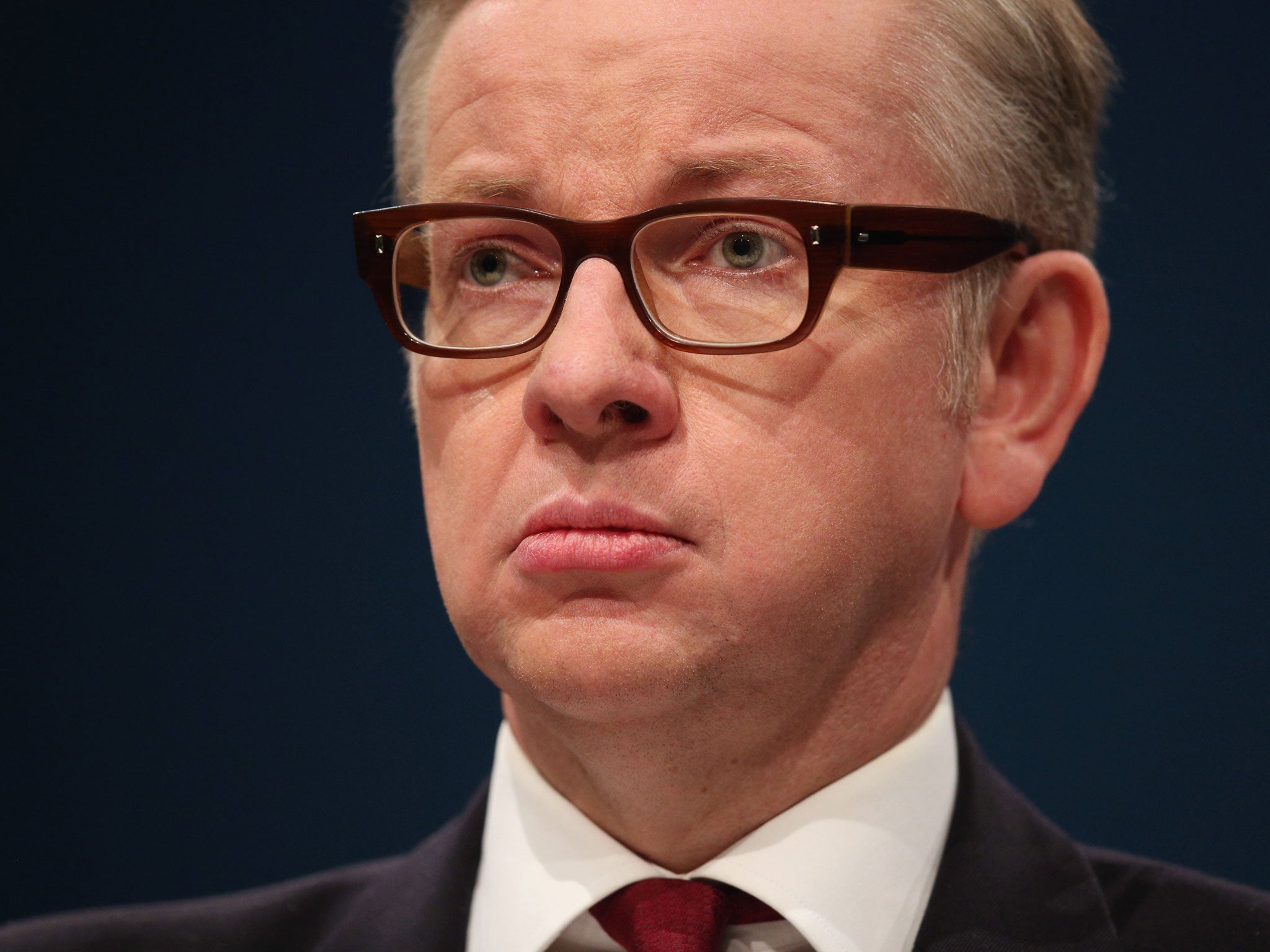Inside Whitehall: Spot the motivations behind the critiques of the Gove and Morgan spat
The BBC could perhaps better have described Sir David Bell as a disgruntled ex-employee

Much has already been written about Michael Gove’s very public spat with the now former chairwoman of Ofsted, Baroness Morgan, since The Independent first broke the story last weekend.
Columnists, retired civil servants, opposition politicians (including the Lib Dems) and the participants themselves have all weighed in. But there has been one thing missing from the debate so far which is arguably worth a few more words: the motivation of those who have spoken out.
On Monday, the BBC led its bulletins with the intervention of Sir David Bell – a former permanent secretary in the Department of Education – who warned that Mr Gove was “at risk of surrounding himself with ‘yes’ men”.
The row, he was reported as saying, had shown the importance of having “independent voices within Whitehall”. But just how independent is Sir David?
When Mr Gove took over as Education Secretary, he had already been in post for four years and was regarded with suspicion by the incoming administration. His relationship with Mr Gove and his advisors could be, at best, described as “business-like” and when a job as vice-chancellor of Reading University came up, he took it.
As one Whitehall insider uncharitably put it: “The BBC could perhaps better have described Sir David as a disgruntled ex-employee.”
And what about Lady Morgan herself? She told Radio 4’s Today programme that she had been the victim of a “determined effort from Number 10” to appoint more Tories to the chair of public bodies. She said there was “absolutely a pattern” to recent appointments, adding: “I think it’s extremely worrying.”
But this argument really doesn’t stand up to scrutiny. Of all the departments in government, Michael Gove’s has never shown the slightest inclination to do Downing Street’s bidding.
But should Lady Morgan accept that it was Mr Gove and not Number 10 who was behind the decision not to renew her contract, her argument that the Tories were trying to stuff public bodies with their supporters would not stack up.
That’s because it was Mr Gove who appointed her as chair of Ofsted. She would find it hard to argue that he was being un-political then, but political now – far easier to blame it on Downing Street.
Then there are the Lib Dems. Sir Malcolm Bruce, the party’s deputy leader, told the media: “He [David Laws, the schools minister] is furious. Sally Morgan has been doing a good job, and Ofsted is an impartial body that inspects all schools. We do not know who her successor will be, but it’s strongly rumoured that it will be a high-ranking Tory backer. David Laws… is being undermined… by the Secretary of State.”
Now Mr Laws may be furious, but there is also a motivation behind the Lib Dem intervention which has nothing to do with school standards. For a while they have been looking for issues on which they can differentiate themselves from their Coalition partners in the run-up to the next election.
Attacking Mr Gove for trying to politicise Ofsted is an easy hit. It may or may not be correct – but the fact that the Lib Dems want to have the row in public rather than behind closed doors suggests their motivations are not clear cut.
None of this is to entirely invalidate the arguments of Sir David, Lady Morgan or the Lib Dems. But context and motivation is everything. Just because someone used to be a civil servant doesn’t mean they don’t have personal and political views of their own.
Join our commenting forum
Join thought-provoking conversations, follow other Independent readers and see their replies
Comments
Bookmark popover
Removed from bookmarks